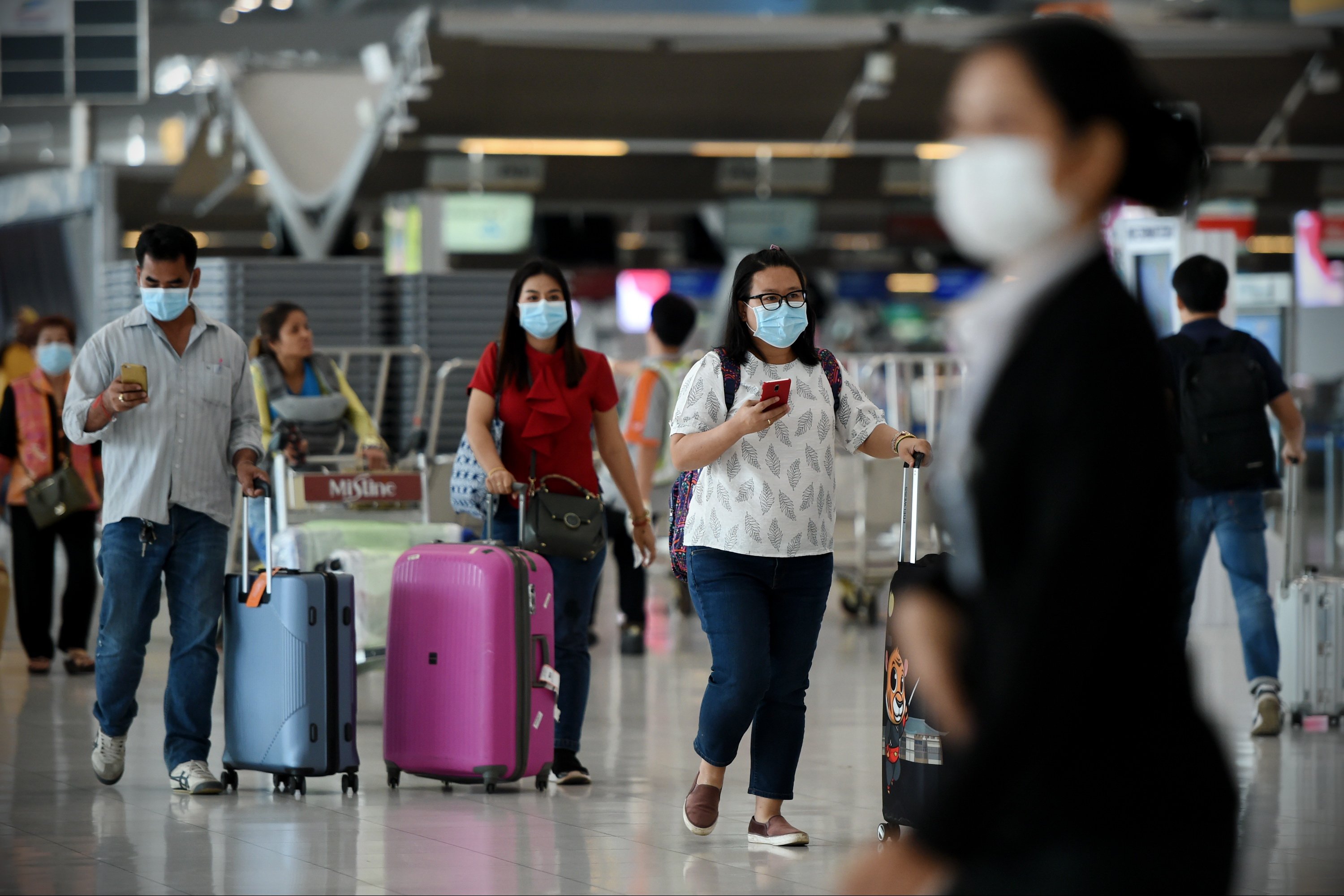
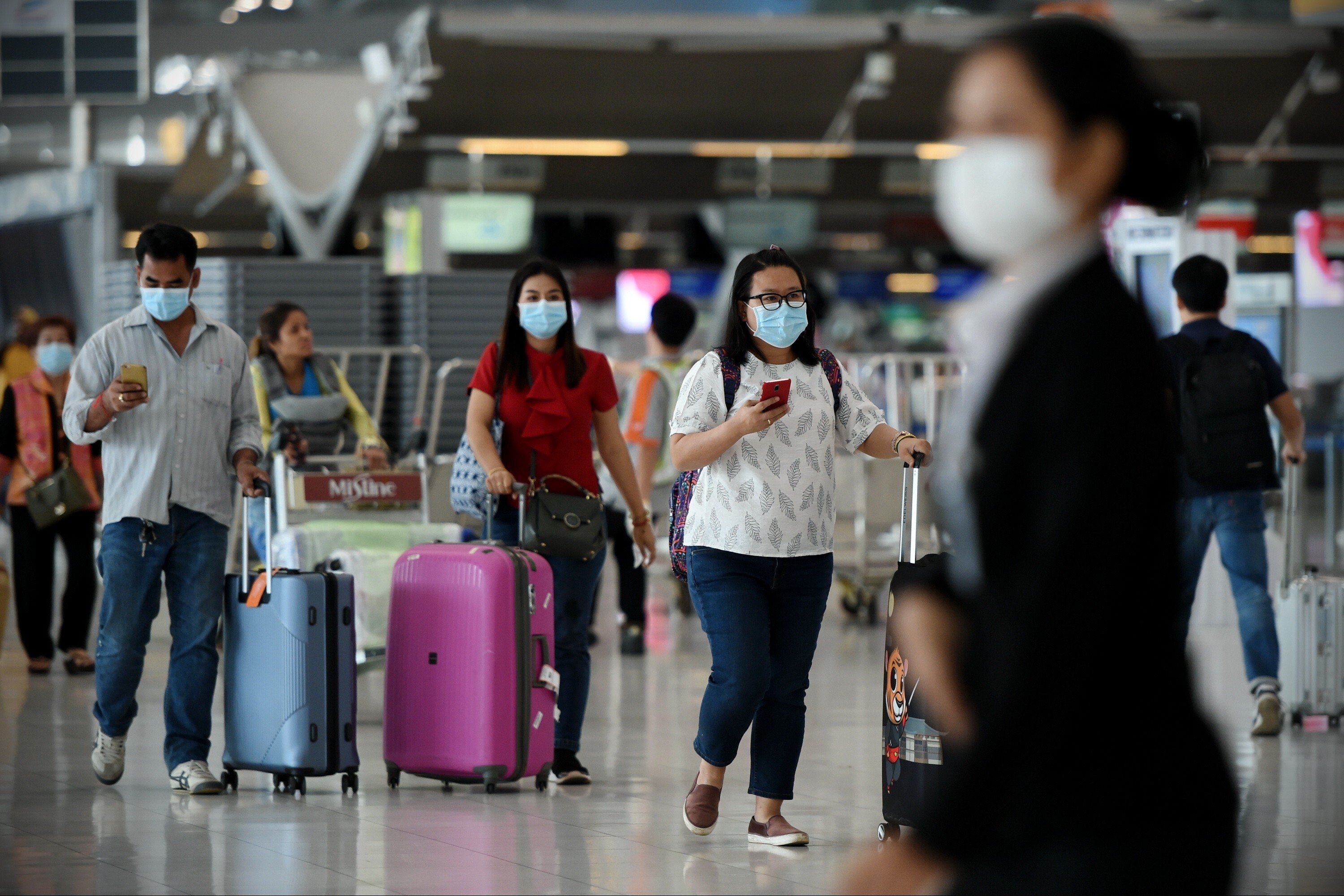
- Elenium Automation's hands-free, self-service check-in screening technology uses machine-learning tools to detect signs of illness
- Grab, a ride-hailing company that operates throughout Southeast Asia, also uses the technology to identify bogus transactions, gain passenger insights and enhance online travel maps
While most international travel has come to a halt amid the global spread of the coronavirus disease, Covid-19, an Australian technology company has come up with a smart passenger kiosk that may provide clues about what the future holds for air travel.
The portable, cloud-based kiosk, unveiled by Elenium Automation in April, is both a health-screening device and a self-service check-in machine. The new hands-free technology used to assess a passenger’s vital signs – which can also be retrofitted into any existing check-in kiosk – is available at a time when countries are looking for solutions to isolate travellers with flu-like symptoms and safely reopen their economies.
While a passenger stands in front of the device to check in for a flight, it simultaneously detects the person’s temperature, heart rate and respiratory rate for possible symptoms of an illness. Travellers can also control the kiosk’s hands-free screen with their voice or head movements – avoiding the need for any physical contact.

The kiosk makes use of artificial intelligence (AI) – a technology that allows computer systems to perform tasks such as voice recognition and biometric identification, that normally require human intelligence.
“When Covid-19 happened, we started thinking how people will interact at the airport moving forward,” Aaron Hornlimann, the company’s CEO, says. He hopes the device can help the aviation industry identify and intercept symptomatic passengers and resume services amid the pandemic.
[In future] there might be a variation of Covid-19 or a bad flu season, so this technology can have applications beyond the current pandemic
Elenium Automation, which was set up in 2016, has focused on boosting aviation industry efficiencies, such as developing solutions that allow passengers to move more quickly through terminals and board aircraft.
Hornlimann says it was able to present a much-needed solution and instil greater confidence in air travel in only a few months because it uses machine learning – an application of AI that gives computers the ability to automatically learn and make accurate predictions by looking for patterns while studying large amounts of data.
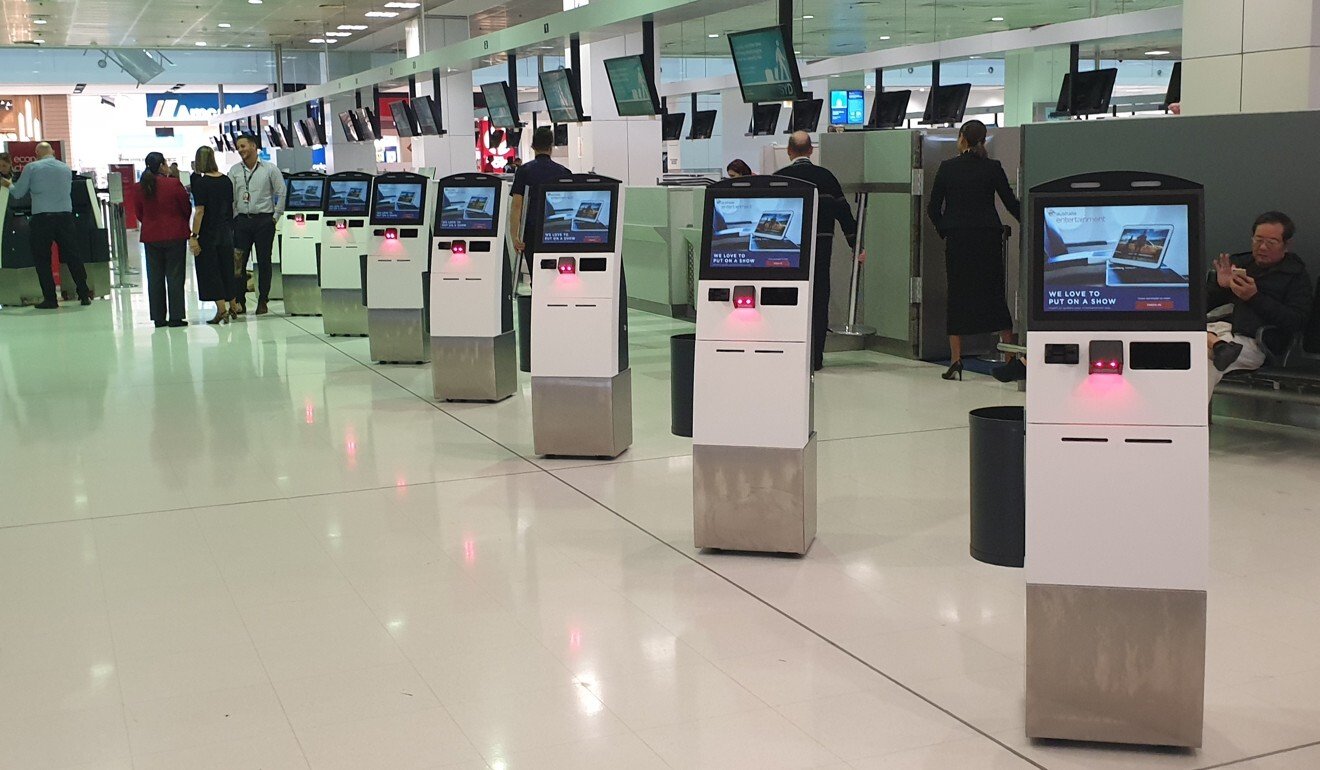
Hornlimann’s team trained the devices to recognise speech, detect motion and predict user behaviour, which gives them the ability to interact with users with tools provided by Amazon Web Services (AWS) – a cloud-computing services subsidiary of Amazon.
“Artificial intelligence and machine learning are very good at picking up patterns,” he says. “We are using voice recognition and gesture control [in our devices], and they are both heavily powered by machine learning.”
Artificial intelligence and machine learning are very good at picking up patterns. We use voice recognition and gesture control ... they are both heavily powered by machine learning
Machine learning also enabled his team to develop a highly accurate thermal detector for use in the kiosks. The devices are trained to automatically suspend a passenger’s check-in process if it detects possible symptoms of an illness.
The technology has now been adopted for screening passengers by Etihad Airways and Australia’s Avalon Airport, which serves the cities of Geelong and Melbourne.

Hornlimann says his company has also been approached by care centres for the elderly, governments and offices, and he is optimistic about the future use of the technology.
“Moving forward, there might be a variation of Covid-19 or a bad flu season, so this technology can have applications beyond the current pandemic,” he says.
Making commuting easier
Nathaniel Slater, team leader of the Amazon Machine Learning Solutions Lab at AWS – on which Elenium built its machine-learning solutions – says the health screening devices show how machine learning can be applied to tackle urgent problems in the society.
“There is certainly an amazing amount of potential with machine learning,” Slater says, adding that machine learning had already been applied across many industries to improve efficiencies and user experience before the Covid-19 pandemic.
Grab, a leading ride-hailing company based in Singapore, has used the technology to optimise its transport, food delivery and payment app.

Foo Wui Ngiap, the company’s head of technology, says machine learning has allowed the company to cut down on waiting times and fraudulent transactions.
Grab, which operates in Southeast Asian countries such as Singapore, Indonesia, Malaysia, the Philippines and Thailand, began using machine learning five years ago, when it wanted to gain insights into the billions of transactions it processed to optimise its services.
“The breadth of the data is incredibly rich, and we wanted to make that useful and enriching to everybody,” Foo says.
When we first started, the online industry benchmark of fraud in Southeast Asia was close to 20 per cent … with machine learning we cut the number of fraudulent transactions to less than 1 per cent
He particularly wanted to tackle the problem of fraudulent transactions, which undermined the platform’s safety. “When we first started our business, the industry benchmark of fraud for any online industry [in Southeast Asia] was close to 20 per cent,” he says.
With machine learning, his team has been able to train the system to detect anomalies in suspected transactions, allowing it to cut the number of fraudulent transactions to less than 1 per cent today.
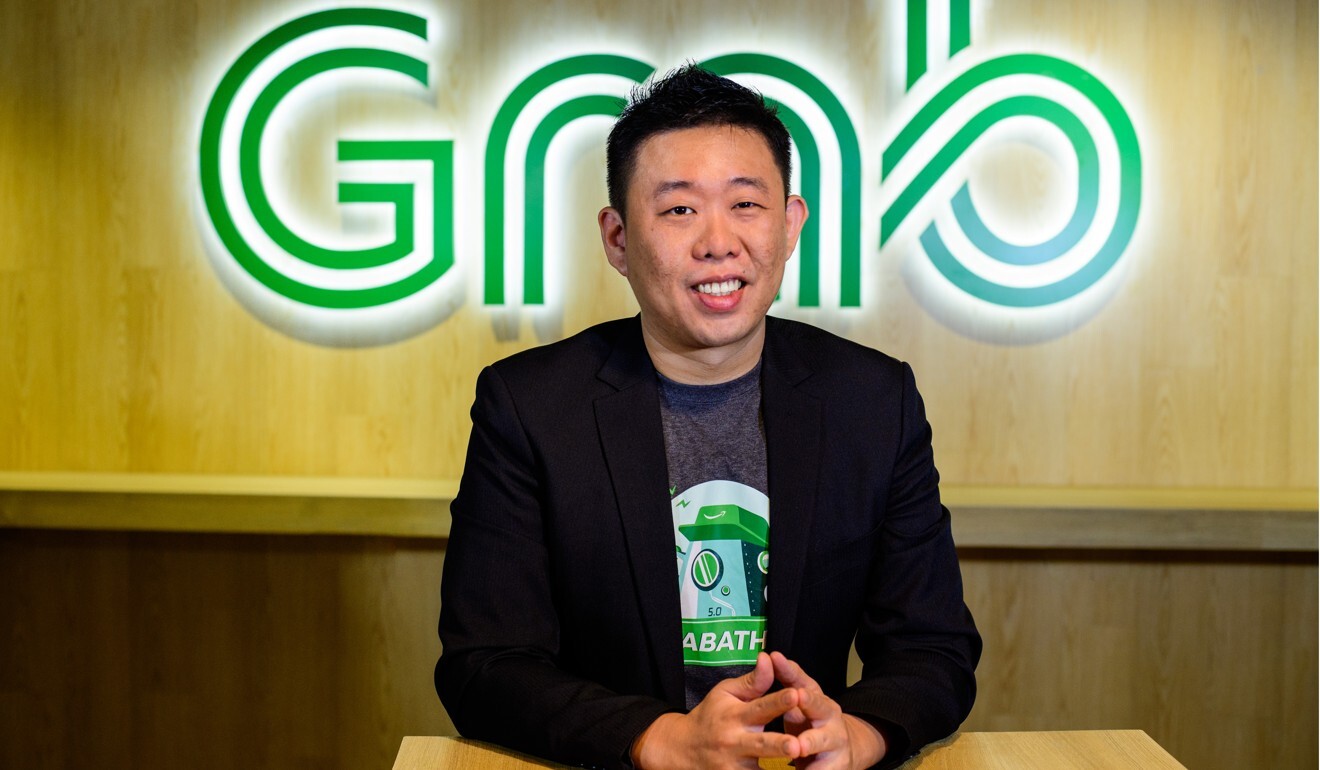
Besides boosting security features, Foo says machine learning has also enabled his company to contribute to the development of smart cities in Southeast Asia.
“We’ve never tried to just improve things on our app,” he says. “Instead, we always try to make Southeast Asia the place we envision it to be.”
One project his team has been working on is to visualise “hidden” alleys in Vietnam and Indonesia that do not appear on maps, but are widely used as short cuts by local drivers.
“We realised that our drivers frequently take short cuts and will disappear from the map,” he says. Because Grab’s servers receive its drivers’ real-time locations, machine-learning tools have helped it identify undocumented routes, such as alleys, that are frequently used by local drivers.
Thanks to these insights, the company has added these alleys to open online maps, such as Open Street Maps, which benefits society at large.
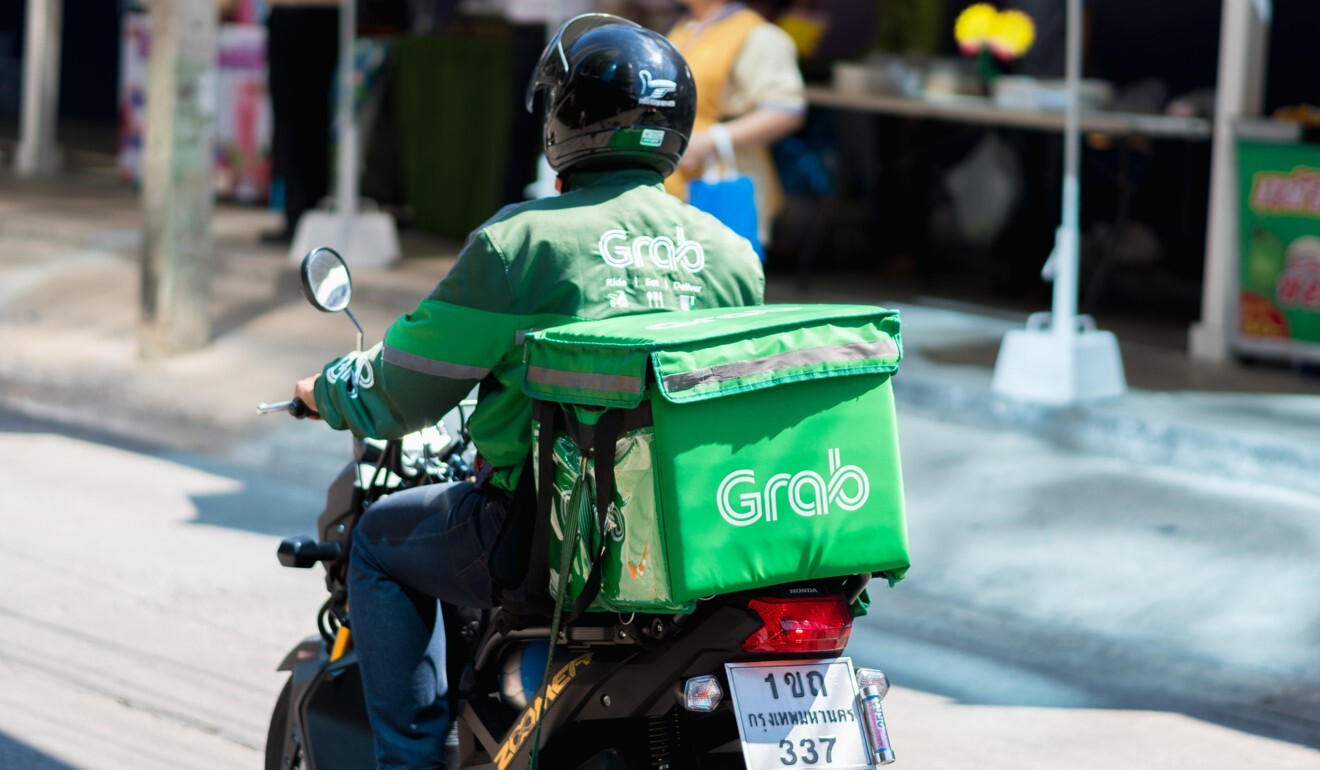
Last year, the company announced plans to invest another US$150 million in machine learning, which will be used to further protect travellers’ safety and tackle traffic congestion.
“We take a very long-term view of how we are part of the broader ecosystem of Southeast Asia, and it is a social responsibility for players like us to be able to contribute,” he says.
Preparing for machine learning
Slater, who has more than two decades of experience as a software engineer, says the examples of Elenium and Grab show the broad range of uses of machine learning across different industries. “There are many innovative start-up companies developing products that really cannot exist without machine learning,” he says.
He says companies trying to replicate their success should always understand the type of data they have and ensure close cooperation between business and technical experts.
There are many innovative start-up companies developing products that really cannot exist without machine learning
In the case of Grab, the company clearly identified data sets that could be used to train computers – such as the routes most often taken by drivers and those that have regular traffic delays.
Slater says machine learning is “very hungry for data” because computer systems need to study large amounts of data to make accurate predictions.
“The biggest challenge for most companies getting started is that, if you do not have the right kind of data, you cannot effectively train a machine-learning model.”
He says companies should ensure their business experts work closely with data scientists in analysing data patterns and addressing problems.

Foo says one of the biggest challenges for Grab in implementing machine learning has been to convince its different departments of the need to embrace the use of algorithms in their everyday operations.
His team gained support by highlighting the need to use technology to detect fraudulent activities and prevent losses. This helped him convince the company that insights obtained from machine learning could lead to better decision-making.
“[We are] able to insert AI ‘goodness’ into the company, and then spread it concentrically outwards from that,” he says.
Slater says input from across a company is needed so that data engineers can discover the type of algorithm that is best suited to solving the business’ most urgent problems.
“Machine learning is ultimately interdisciplinary,” he says. “It’s really the marriage of business expertise with technical expertise that gives you the sweet spot with machine learning.”

